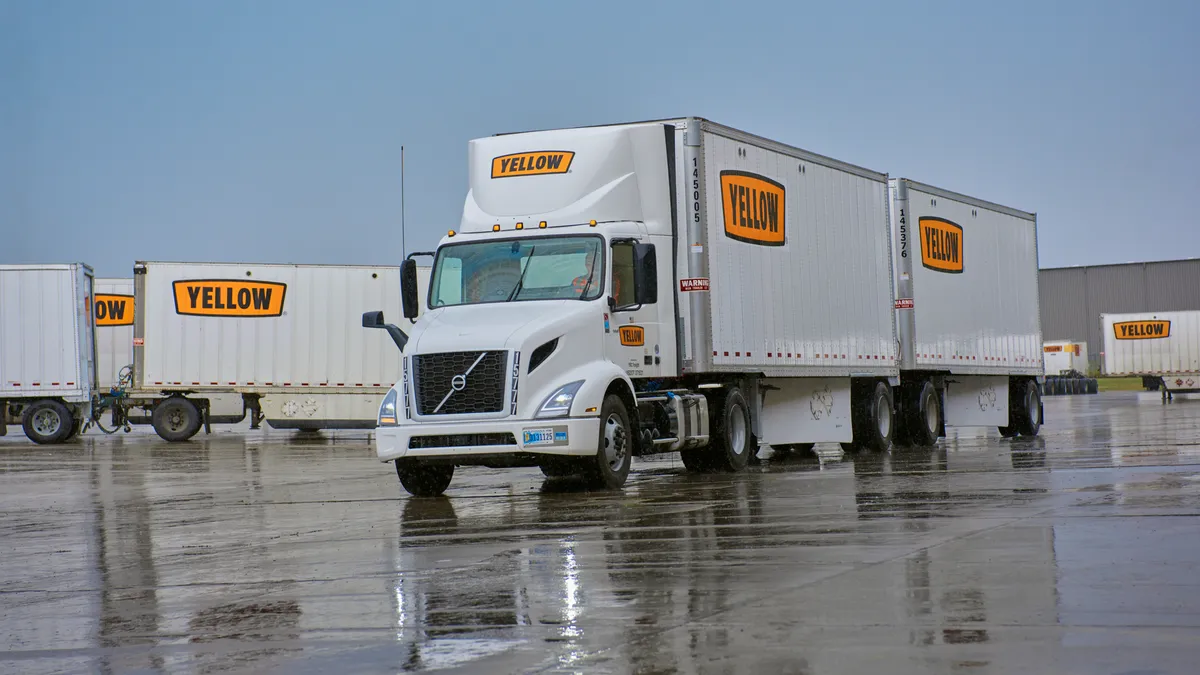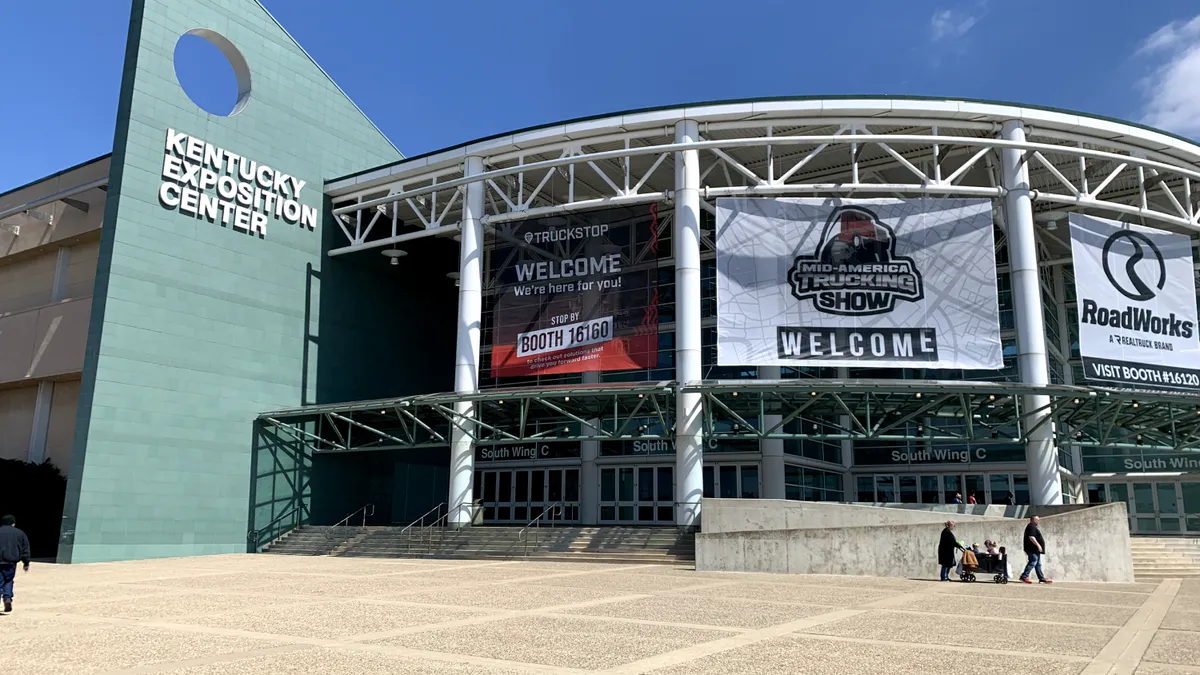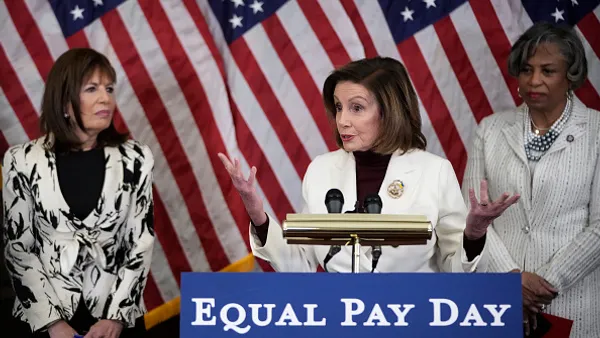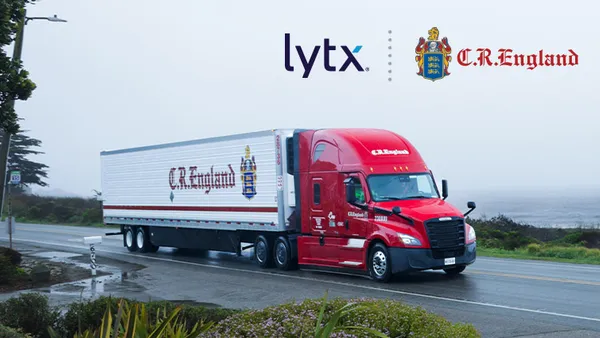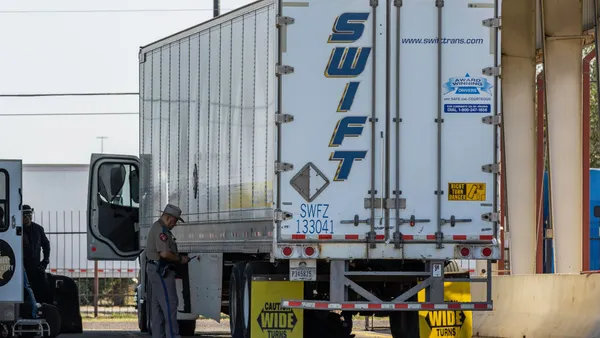Dive Brief:
- The International Brotherhood of Teamsters this week blasted a proposal by Yellow Corp. to expand work rules and the carrier’s use of third-party, purchased transportation without guaranteeing wage increases.
- Yellow’s May 30 letter of agreement sought an immediate contract modification that would allow the carrier to require union workers to perform “all assigned job functions at any terminal, and on behalf of any customer.” It pushed to expand its use of purchased transportation to 29% of all road miles across all operations.
- Teamsters National Freight Director John Murphy called the proposal “a one-way street in favor of the Company” in a memo sent to members Monday. “It is a non-starter and the Company’s conduct is offensive,” he wrote.
Dive Insight:
The exchange between the union and carrier shows Yellow’s urgent desire to move forward with the combination of its Holland, New Penn, Reddaway and YRC Freight subsidiaries into a super-regional LTL provider. Yellow considers its One Yellow plan to eliminate redundant routes and sell 28 terminals essential to its survival.
The company completed the first phase of the overhaul on the West Coast last year, but it claimed in a statement Tuesday that the union halted the second phase earlier this year “to extract wage increases.”
“By stonewalling Yellow’s implementation of Phase 2, the Union has impaired Yellow’s ability to continue as a going concern and jeopardizes the jobs of its members,” company spokesperson Heather Nauert said in the statement.
In recognition of the union’s demands for improved wages, the carrier’s letter proposed to accelerate $0.40-an-hour and $0.01-per-mile wage increases already scheduled for October. But it stressed the proposed raise was “on a conditional basis while it pursues simultaneous discussions with its lenders.”
Yellow has nearly $1.6 billion in debt payments and obligations due in the next three years.
“Without a restructuring or refinancing of the Company’s existing debt or the successful procurement of bridge financing that can support such wage increases until the Company’s existing debt can be restructured or refinanced, the Company does not have the means to pay the increases proposed,” Yellow’s May 30 letter said.
As part of One Yellow, the company proposed diverting 29% of all road miles across its entire operation to purchased transportation or rail carriers. YRC Freight is the only of its subsidiaries currently allowed to use that much PT. Reddaway’s use is contractually limited to 20% and Holland’s is capped at 8%. New Penn uses none at all.
Yellow also wants the ability to require over-the-road drivers to work terminal docks, “without regard to whether the Company has completed its planned consolidation of operating entities into a single operating entity,” according to its letter.
Murphy, the union leader, told members in his memo that Yellow is “a troubled company.” But he called it “totally unfair for the Company to try to put its problems on us and ask for more contractual concessions.”
“I don’t know what the future holds or whether this Company can ever figure out how to run a good truckline,” he wrote. “I hope it can get its act together. I truly want it to succeed. We have great members at Yellow. But the problems the Company has are the Company’s to solve.”
Yellow argued the union’s conduct, not the carrier’s, has been offensive.
“As the Union has long understood, including through its representative participation on Yellow’s Board of Directors, the completion of the One Yellow implementation this year is of critical importance to Yellow,” Nauert said.



